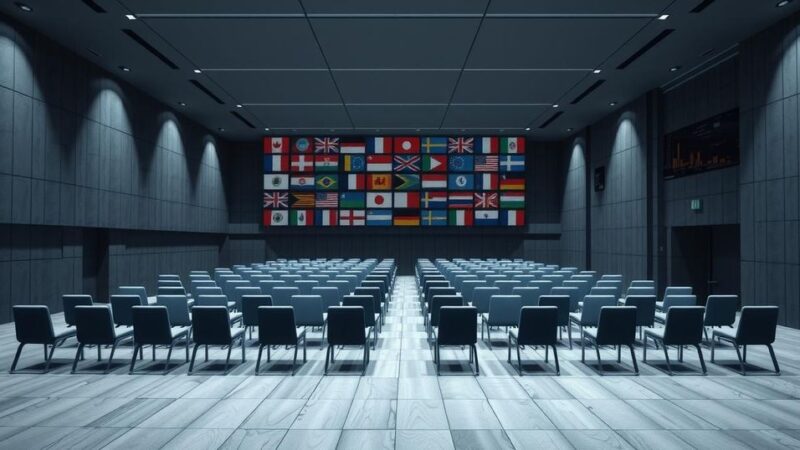The article condemns the brutality of Turkey-backed jihadists in Syria, highlighting a massacre of over 1,000 individuals and critiquing Western media for its indifference. It discusses the grim realities faced by Syria’s minorities and underscores that no faction emerging from jihadism can be deemed ‘good,’ as such movements embody chaos and destruction. The article calls for accountability and illumination of these harsh truths.
Recent events in Syria illustrate an escalation of brutality perpetrated by Turkey-backed jihadists and Islamists, prompting concerns that Western media largely ignores this violence. Over 1,000 individuals were brutally killed by newly established Syrian security forces, echoing the horrific acts committed by Hamas on October 7, 2023. The executions of Syria’s minorities involved degrading acts, with victims forced to bark like dogs and pledge loyalty before being murdered. This alarming behavior parallels that of Hamas, which filmed and disseminated its atrocities.
Despite the gravity of these events, public response in the West has been conspicuously minimal, lacking protests, boycotts, or significant media coverage. As one observer succinctly stated, “No Jews, no news.” For years, Syrian civilians have endured immense suffering from radical Islamic factions backed by various foreign powers, including Iran and Turkey. Following the rebels’ ousting of Bashar al-Assad in December 2024, Hay’at Tahrir al-Sham (HTS), led by Ahmed al-Sharaa, assumed power. This shift raised concerns about Syria’s minorities and regional security, as HTS represents a jihadist faction rooted in al-Qaeda.
Initially, HTS attempted to project a reformed image to the Western media, with outlets such as CNN granting Sharaa a platform to promote a vision of a democratic Syria. However, this false narrative was shattered following the massacre of 830 Alawite Syrians by HTS security forces within 48 hours. A similar pattern emerged after the death of former Iranian president Ebrahim Raisi, with Western media depicting his successor, Masoud Pezeshkian, as a reformist despite his authoritarian stance and support for oppressive policies.
Western media now seems to downplay or ignore the atrocities committed by the jihadists they once characterized as “moderate.” The recent violence stemmed from an ambush by Alawites loyal to Assad, provoking a disproportionate retaliation against them. The Alawites, accounting for roughly 10% of Syria’s population, alongside Druze, Kurds, and Christians, now face uncertainty regarding their safety under the new regime, which has shown little inclination toward democratic governance.
The brutal actions of these jihadists cannot, and must not, be justified. Syria continues to grapple with war, having merely replaced one tyrannical regime with another. A leader from al-Qaeda cannot be legitimately associated with democracy, regardless of their presentation. Calls for Israeli military intervention by Alawite leaders following Russia’s perceived betrayal highlight the complex realities on the ground, with Israel now being urged to stabilize a nation in turmoil while battling its own adversaries.
Iran, Russia, and Turkey hold significant responsibility for Syria’s devastation, having exploited the situation to fortify their geopolitical stance against Israel. This disconnect between Western perceptions and the harsh realities in nations ruled by radical jihadists fosters misunderstanding. Few can grasp the depths of violence, such as the murder of innocents by Hamas or the public executions conducted by Syrian jihadists.
This lack of comprehension can lead to sympathies towards radical factions, obscuring the reality that both HTS in Syria and Hamas in Gaza embody genocidal ideologies that prioritize annihilation over governance. Radical Islamism breeds chaos and devastation; in Gaza, for instance, Hamas has betrayed its own populace for foreign gains. There is, unequivocally, no such thing as a good jihadist.
In summary, the recent atrocities perpetrated by Syria’s jihadists highlight a disconcerting pattern of brutality largely overlooked by Western media. As these groups continue to commit egregious acts against minorities and present a façade of moderation, it is critical to recognize the interconnectedness of radicalism and the political landscape in which it thrives. The call for accountability and understanding of these realities is essential to prevent further ignorance and to support those adversely affected by such regimes.
Original Source: www.jpost.com






